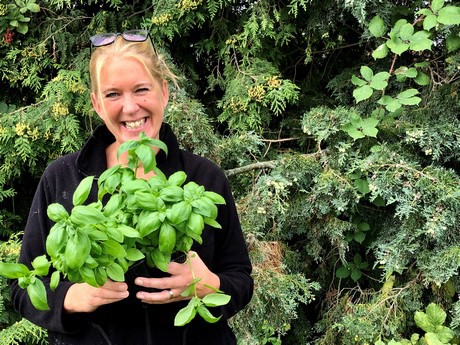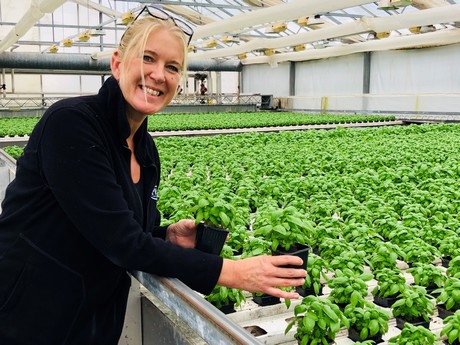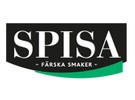Fresh herbs have been gaining popularity in the past few years and according to Jonna Hansson from the Swedish herb company Spisa Smaker, the product demand has been steady. The company works mostly with potted herbs, which makes up about 85% of their product while the other 15% of their product is cut herbs.
Jonna discusses this year’s demand: “For our potted variety the demand has been steady these past few years, there have been no major ups or downs. For the cuts herbs, however, we are seeing an increase in demand. One of our new products is the Flowpack. With the Flowpack, we cut away the pots in the greenhouses and bring the packaged herbs directly to the customers. This gives the herbs longer shelf-lives – ten days instead of seven. We do this for herbs like dill, parsley, fresh chives and basil. For these products, we are seeing an increase in demand.”

Of the growing popularity of herbs, Jonna says: “Dill is one of our most popular herbs right now, but our coriander and mint have been growing in popularity every year. The expansion of the dishes we eat has contributed to this rise – consumers are becoming more familiar with these herbs as they begin to incorporate dishes from countries where these herbs are often used. Then there are other herbs that never sway in their popularity, but always have high demand. Basil is one of these herbs, people will always want to buy basil. ”
The company is a part of the larger Spisa Group, which has greenhouses in locations throughout Europe such as Portugal, the United Kingdom, Czech Republic, and Poland. The group’s main concept is to grow in the country for the country. All the herbs are grown in greenhouses and sold locally. According to Jonna, this is because the customers prefer locally grown foods: “Customers place value on locally grown foods because it is better for the environment. They even value locally grown over organic foods. Our company offers both: we were the first company to go completely organic in 1999.”

Keeping in line with the consumer’s demand for environmentally friendly products, the company tries to avoid plastic as much as possible. “Our potted herbs are a good environmental option because they are more sustainable and have a great shelf-life. The challenge with reducing plastic packaging is the product’s shelf-life. Often when you reduce packaging, you also reduce the product’s shelf-life. We are constantly working on finding better materials to package our products. It is very important to communicate well with the producers and the workers because they see sides of the issue that we might not notice. Dialogue in the company is very important” Jonna concludes.
For more information: 
Jonna Hansson
Spisa Smaker
Tel: +46 725 35 68 57
Email: jonna.h@spisa.se
www.spisa.se
